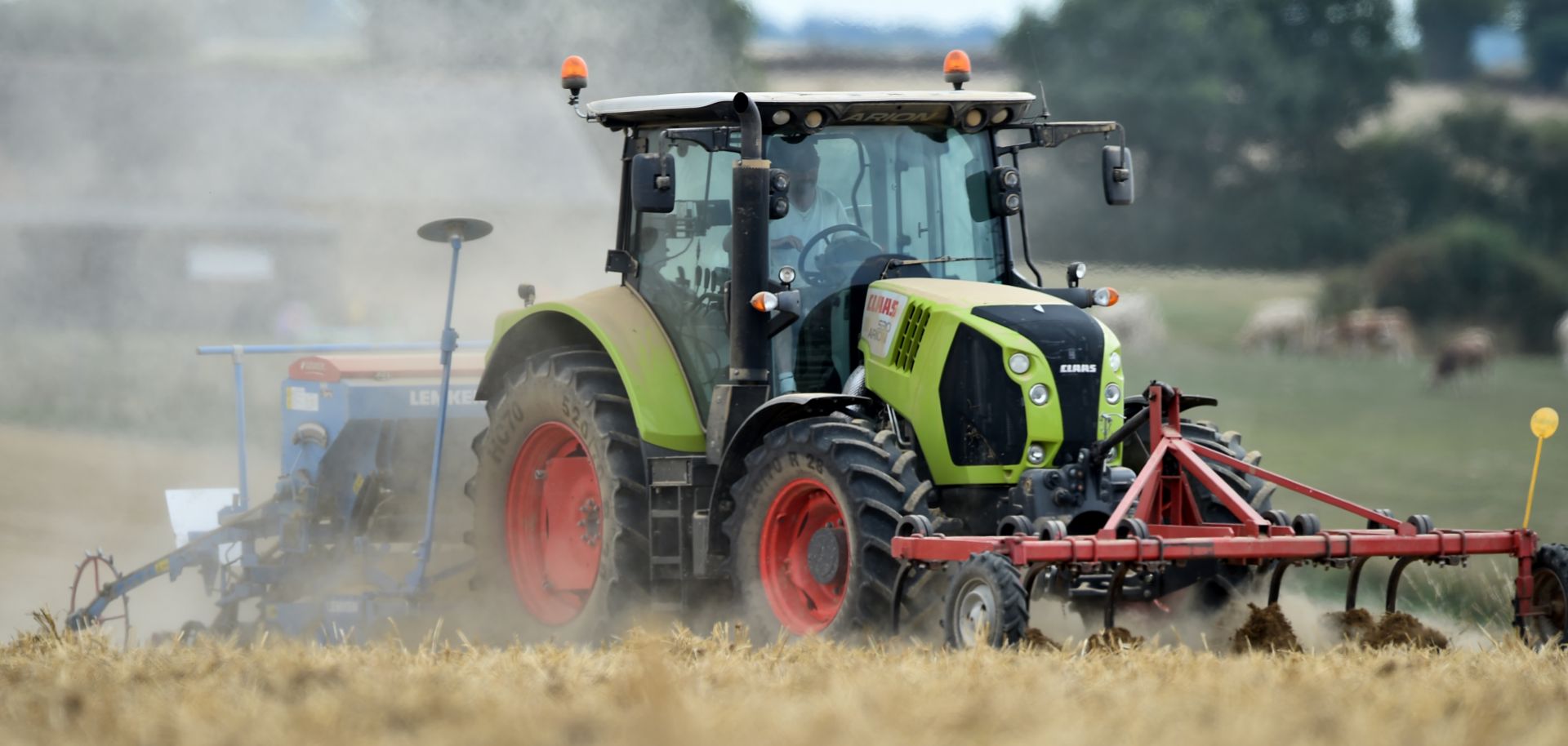ASSESSMENTS
Europe's Agriculture Sector Faces More Competition in the Future
Aug 28, 2018 | 09:30 GMT

A farmer drives a tractor as he sows his field in a field near Bouloire, France on Aug. 21, 2018. Europe's agriculture lobbies have a history of being well-organized and extremely politically and economically influential.
(JEAN-FRANCOIS MONIER/AFP/Getty Images)
Highlights
- Agricultural lobbies have historically been very active in Europe, often able to influence policy at the national and supranational level.
- Yet the impact of European agricultural lobbies is dwindling, in no small part because of declining rural populations and the agricultural sector's declining contribution to the European Union's economy.
- In the coming years, Europe is likely to continue reducing farm subsidies and to become more open to including agriculture in free trade negotiations.
- This will force farmers to adapt to a more competitive environment.
Proceed to sign up
Register NowAlready have an account?
Sign In